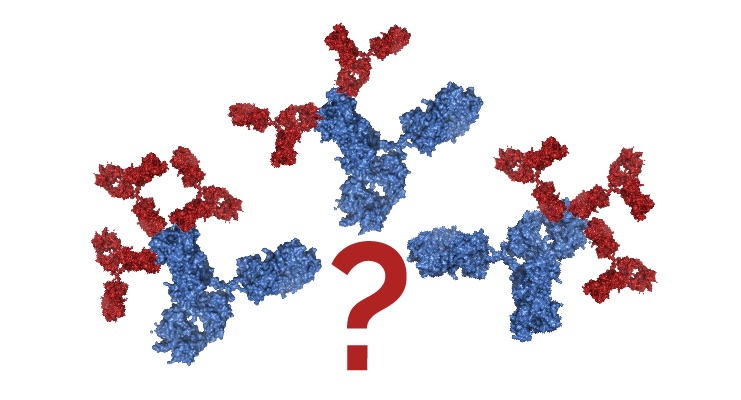 Tool antibodies are the dominant affinity reagent for proteomics in cell biology, reflected by the over 4.5 million antibodies that are commercially available. Distinct from therapeutics or diagnostics, tool antibodies tend to be poorly characterized. This is echoed by many reports of catastrophic specificity, activity, identity and reporting deficits involving such reagents.
Tool antibodies are the dominant affinity reagent for proteomics in cell biology, reflected by the over 4.5 million antibodies that are commercially available. Distinct from therapeutics or diagnostics, tool antibodies tend to be poorly characterized. This is echoed by many reports of catastrophic specificity, activity, identity and reporting deficits involving such reagents.
Nevertheless, biological sciences remain highly dependent on them.
In this 10-part series, aimed especially at those beginning a career in biological sciences, The Antibody Society has invited leaders in antibody research from industry and academia to reflect on antibody validation. They paint a uniformly alarming picture of inadequacies at many levels – which encourages users to be highly aware of the consequences of inadequate tool antibody validation, which threaten their biological endeavors.
Moderator: Dr. Simon Goodman,
Broadcast dates: November 12, 2019 – February 19, 2020.
All 10 videos can be viewed on our YouTube channel.
#1: Antibody specificity? What’s the problem
In this introduction to the topic, Professor Andreas Plückthun, University of Zürich, discusses the biology of the 3 principal types of commercial antibodies: polyclonal, monoclonal, and recombinant. Surprisingly, only recombinants offer a reasonable hope of reproducibility in the long term – yet they remain very much the minority.
Speaker: Dr. Andreas Plückthun
View On-Demand Recording
View Dr. Plückthun’s Presentation Slides
View Questions and Answers from the live Webinar 1
#2: Antibodies drive irreproducibility
Professor Glenn Begley, Biocurate Pty Ltd, and Professor Cecilia Williams, KTH Royal Institute of Technology, describe arduous, alarming and very costly experiences in failing to confirm “well established” critical data in oncology – a failure often driven by ineptly characterized antibodies.
Speakers: Dr. Glenn Begley and Dr. Cecilia Williams
View On-Demand Recording
View Dr. Begley’s Presentation Slides View Dr. Williams’ Presentation Slides
View Questions and Answers from the live Webinar 2
#3: What’s in a name? Finding the antibody for the job
Dr. Jan Voskuil, Aeonian Biotech, and Professor Andy Chalmers, University of Bath and CiteAb, delve into the mysterious world of the original equipment manufacturers (OEMs), which can veil the identity of antibodies, and data-base repositories that help unveil which antibody has produced reliable results.
Speakers: Dr. Jan Voskuil and Dr. Andrew Chalmers
View On-Demand Recording
View Dr. Voskuil’s Presentation Slides View Dr. Chalmers’ Presentation Slides
View Questions and Answers from the live Webinar 3
#4: What is this antibody?
Professor Anita Bandrowski, University California San Diego and SciCrunch, and Dr. Jan Voskuil, Aeonian Biotech, probe how antibody reagents are identified. If we can’t identify which antibody has been used, we can never reproduce experiments. The Research Reagent Identifier systematically tags antibodies so they can be tracked, but the small-print on the data-sheets still hides many things.
Speakers: Dr. Jan Voskuil and Dr. Anita Bandrowski
View On-Demand Recording
View Dr. Voskuil’s Presentation Slides View Dr. Bandrowski’s Presentation Slides
View Questions and Answers from the live Webinar 4
#5: Really? Out of control(s)?
Dr. Giovanna Roncador, Centro Nacional de Investigaciones Oncológicas and EuroMabNet, examines the criticality of using appropriate fit-for-purpose controls, both positive and negative, to validate antibodies in every experimental context.
Speaker: Dr. Giovanna Roncador
View On-Demand Recording
View Dr. Roncador’s Presentation Slides
View Questions and Answers from the live Webinar 5
#6: Even the Easy Stuff Isn’t
Professors Aldrin Gomes and James Trimmer, both from University of California, Davis, dissect two “basic” validation technologies, Western blot and immunohistochemistry, to expose the very many things that can distort validation data.
Speakers: Dr. Aldrin Gomes and Dr. James Trimmer
View On-Demand Recording
View Dr. Gomes’ Presentation Slides View Dr. Trimmer’s Presentation Slides
View Questions and Answers from the live Webinar 6
#7: It’s a Knockout
Travis Hardcastle, Horizon, and Dr. Alejandra Solache, Abcam, describe the character of different gene-knockout technologies, one of the strongest validation technologies, and their value in large-scale antibody screening.
Speakers: Dr. Travis Hardcastle and Dr. Alejandra Solache
View On-Demand Recording
View Travis Hardcastle’s Presentation Slides View Dr. Solache’s Presentation Slides
View Questions and Answers from the live Webinar 7
#8: Protein Arrays and Mass Spectrometry
Dr. Mike Taussig, Cambridge Protein Arrays, and Dr. Fridtjof Lund-Johansen, Oslo University Hospital, look at array and immunoprecipitation-mass spectrometry technologies, which offer a broader and deeper image of antibody specificity and selectivity for validation, than classical validation technologies.
Speakers: Dr. Mike Taussig and Dr. Fridtjof Lund-Johansen
View On-Demand Recording
View Dr. Taussig’s Presentation Slides View Dr. Lund-Johansen’s Presentation Slides
View Questions and Answers from the live Webinar 8
#9: Getting to Recombinant Antibodies that Guarantee Reproducible Research
Dr. Andrew Bradbury, Specifica, suggests ways out of the validation maze by rigorous molecular identification of recombinant tool antibodies. This achievable goal could eliminate many of the shadowy issues described in this series of webinars.
Speaker: Dr. Andrew Bradbury
View On-Demand Recording
View Dr. Bradbury’s Presentation Slides
View Questions and Answers from the live Webinar 9
#10: Specific Detection Reagents: What’s the Future?
Future recombinant binding tools may avoid antibodies, and use diversified libraries based on small and versatile protein scaffolds, for example the DARPins (Designed Ankyrin Repeat Proteins). DARPins are single-chain, monodisperse, and non-immunogenic, and can be made rapidly and cheaply in bacteria in many formats. They can also be expressed in and on cells as non-aggregating fusion proteins with tunable valencies, which opens a wide range of previously- inaccessible approaches in cell biology and biochemistry.
Speaker: Dr. Andreas Plückthun
View On-Demand Recording
View Prof. Plückthun’s Presentation Slides
View Questions and Answers from the live Webinar 10

